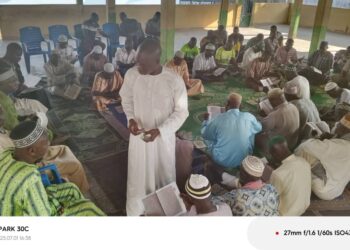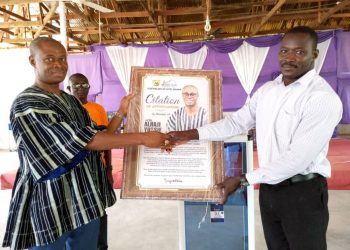
Two health practitioners with the Bole District Hospital, Mr Ankaara Issah Hamza and Mr Donhuno Denis had both urged communities to stop myths and superstitions that lead to the discrimination of people with albinism.
They made the statement when they appeared on Yagbon radio local program “Jaanuor buur” to mark this this year’s International Albinism Awareness Day (IAAD), which is annually observed on June 13.
It is an International event aiming at ending violence and discrimination against people with albinism.
The two health practitioners took time to highlight the challenges faced by people with albinism and create community awareness and understanding of the condition.
“There are many myths surrounding people with albinism condition. Some of these myths are scary, misleading and forcing people with the condition to live in fear for the rest of their lives,” they noted.
They said families need to seek accurate information about albinism and educate siblings to make them understand why their brother or sister looks different.
“I am very excited about this program. I believe it can assist us to clear the myths and to ensure that people with albinism are not hindered from full participation in social and economic activities,” said Mr Denis.
Albinism according to scientists is a disease in which a person has partial or complete loss of pigmentation (coloring) of the skin, eyes and hair and that It is caused by a reduction or absence of a pigment called melanin.
It is said to occur when the cell (melanocyte) responsible for giving skin, hair, and eyes pigmentation are present, but genetic mutations interfere with their pigment production or their ability to distribute it to the major cell type comprising the epidermis, or outer layer of the skin.
There are currently five known genetic types of albinism, the most common being oculocutaneous type 1 (OCA1) and type 2 (OCA2). Oculocutaneous albinism affects the eyes and skin while OCA2, the most common form of albinism in Africa, results from a mutation in the OCA2 gene, which encodes the protein, according to science.
Source: yagbonradioonline









